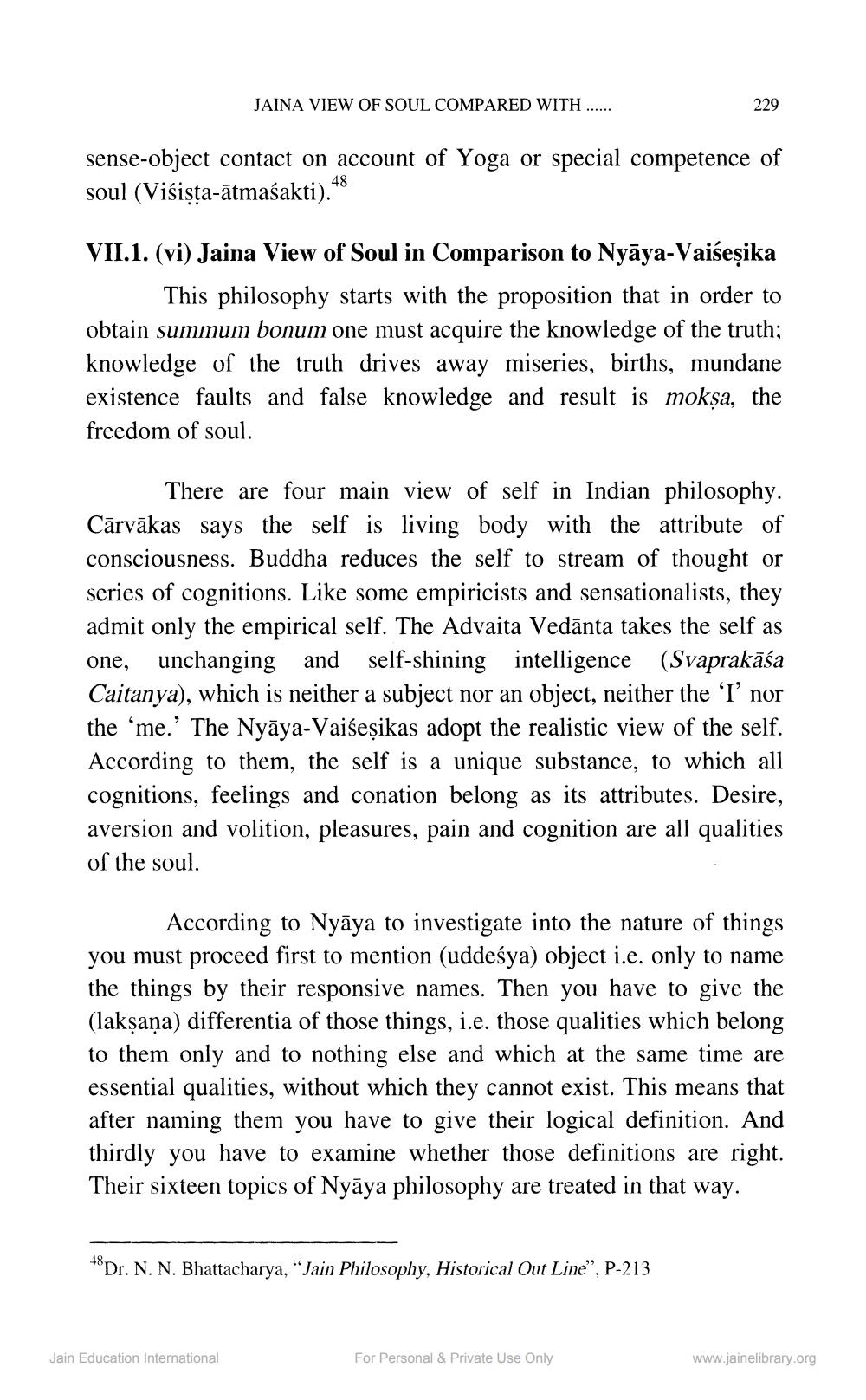________________
JAINA VIEW OF SOUL COMPARED WITH ......
229
sense-object contact on account of Yoga or special competence of soul (Viśista-ātmaśakti).48
VII.1. (vi) Jaina View of Soul in Comparison to Nyāya-Vaiseșika
This philosophy starts with the proposition that in order to obtain summum bonum one must acquire the knowledge of the truth; knowledge of the truth drives away miseries, births, mundane existence faults and false knowledge and result is mokşa, the freedom of soul.
There are four main view of self in Indian philosophy. Cārvākas says the self is living body with the attribute of consciousness. Buddha reduces the self to stream of thought or series of cognitions. Like some empiricists and sensationalists, they admit only the empirical self. The Advaita Vedānta takes the self as one, unchanging and self-shining intelligence (Svaprakāśa Caitanya), which is neither a subject nor an object, neither the 'l' nor the ‘me.' The Nyāya-Vaiseșikas adopt the realistic view of the self. According to them, the self is a unique substance, to which all cognitions, feelings and conation belong as its attributes. Desire, aversion and volition, pleasures, pain and cognition are all qualities of the soul.
According to Nyāya to investigate into the nature of things you must proceed first to mention (uddeśya) object i.e. only to name the things by their responsive names. Then you have to give the (lakṣaṇa) differentia of those things, i.e. those qualities which belong to them only and to nothing else and which at the same time are essential qualities, without which they cannot exist. This means that after naming them you have to give their logical definition. And thirdly you have to examine whether those definitions are right. Their sixteen topics of Nyāya philosophy are treated in that way.
*Dr. N. N. Bhattacharya, "Jain Philosophy, Historical Out Line”, P-213
Jain Education International
For Personal & Private Use Only
www.jainelibrary.org




